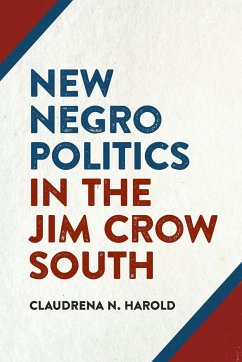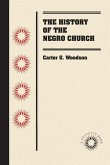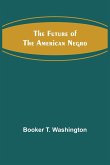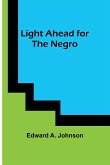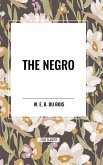This study details how the development and maturation of New Negro politics and thought were shaped not only by New York-based intellectuals and revolutionary transformations in Europe, but also by people, ideas, and organizations rooted in the South. Claudrena N. Harold probes into critical events and developments below the Mason-Dixon Line, sharpening our understanding of how many black activists--along with particular segments of the white American Left--arrived at their views on the politics of race, nationhood, and the capitalist political economy. Focusing on Garveyites, A. Philip Randolph's militant unionists, and black anti-imperialist protest groups, among others, Harold argues that the South was a largely overlooked "incubator of black protest activity" between World War I and the Great Depression. The activity she uncovers had implications beyond the region and adds complexity to a historical moment in which black southerners provided exciting organizational models of grassroots labor activism, assisted in the revitalization of black nationalist politics, engaged in robust intellectual arguments on the future of the South, and challenged the governance of historically black colleges. To uplift the race and by extension transform the world, New Negro southerners risked social isolation, ridicule, and even death. Their stories are reminders that black southerners played a crucial role not only in African Americans' revolutionary quest for political empowerment, ontological clarity, and existential freedom but also in the global struggle to bring forth a more just and democratic world free from racial subjugation, dehumanizing labor practices, and colonial oppression.
Bitte wählen Sie Ihr Anliegen aus.
Rechnungen
Retourenschein anfordern
Bestellstatus
Storno

